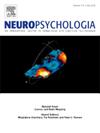Neural activity is altered by childhood trauma exposure and varied by sex in typically developing youths during sustained attention-to-response tasks (SART)
IF 2
3区 心理学
Q3 BEHAVIORAL SCIENCES
引用次数: 0
Abstract
It is well recognized that adults with exposure to childhood traumas are at risk of developing psychopathology and executive dysfunction. However, how these executive function deficits emerge following trauma exposure has not been widely examined. We hypothesized that children exposed to a higher number of early childhood traumas would show reduced amplitude and longer latency in cortical response in executive brain regions during tasks requiring sustained attention and inhibition, compared to children with fewer or no such experiences. We report data from sixty-five typically developing youths 9–15 years of age who self-reported exposure to childhood traumatic events, not including abuse. Brain signals were recorded with magnetoencephalography (MEG) while the sustained attention-to-response task (SART) task was performed. Task-activated sources were localized, and we investigated brain function by measuring amplitude and latency of task-evoked cortical response in frontal and parietal cortices with repeated-measures analysis of variance. A significant (p < 0.05) main effect revealed higher amplitude in low-trauma compared to high-trauma groups in ventral anterior cingulate cortex and superior parietal cortex. Further, significant three-way interactions (trauma/hemisphere/peaks) were found in amplitude of superior parietal cortex and response latency of precentral cortex during the correct No-Go condition, and simple effect analysis showed significantly shorter latency in the high-trauma group in right precentral cortex at P1. Significant interactions of trauma with sex and hemisphere were revealed in multiple pre-selected regions, such that high exposure to trauma affected cortical processing in male and female groups differently. The results may explain sex-specific vulnerability and risks of exposure to childhood trauma with increased susceptibility to psychopathology in adulthood.
在持续注意-反应任务(SART)中,典型发育青少年的神经活动因儿童创伤暴露而改变,并因性别而异。
众所周知,暴露于童年创伤的成年人有发展精神病理和执行功能障碍的风险。然而,这些执行功能缺陷是如何在创伤暴露后出现的尚未得到广泛研究。我们假设,在需要持续注意力和抑制的任务中,暴露于较多早期童年创伤的儿童在执行脑区域的皮质反应中表现出较低的幅度和较长的潜伏期,与没有或较少此类经历的儿童相比。我们报告了65名9-15岁的典型发育青少年的数据,他们自我报告童年创伤事件,不包括虐待。在执行持续注意-反应任务(SART)时,用脑磁图(MEG)记录脑信号。任务激活源被定位,我们通过测量额叶和顶叶皮层任务诱发反应的振幅和潜伏期来研究脑功能,并进行重复测量方差分析。显著(p < 0.05)主效应显示,低创伤组的前扣带腹侧皮层和顶叶上皮层的振幅高于高创伤组。此外,在正确No-Go状态下,顶叶上皮层的振幅和中央前皮层的反应潜伏期存在显著的三方相互作用(创伤/半球/峰值),单效应分析显示,高创伤组在P1时右侧中央前皮层的反应潜伏期显著缩短。在多个预先选择的区域中,创伤与性别和半球的显著相互作用被揭示出来,例如高暴露于创伤对男性和女性组的皮质加工的影响不同。结果可以解释性别特异性的脆弱性和暴露于童年创伤的风险,成年后对精神病理的易感性增加。
本文章由计算机程序翻译,如有差异,请以英文原文为准。
求助全文
约1分钟内获得全文
求助全文
来源期刊

Neuropsychologia
医学-行为科学
CiteScore
5.10
自引率
3.80%
发文量
228
审稿时长
4 months
期刊介绍:
Neuropsychologia is an international interdisciplinary journal devoted to experimental and theoretical contributions that advance understanding of human cognition and behavior from a neuroscience perspective. The journal will consider for publication studies that link brain function with cognitive processes, including attention and awareness, action and motor control, executive functions and cognitive control, memory, language, and emotion and social cognition.
 求助内容:
求助内容: 应助结果提醒方式:
应助结果提醒方式:


